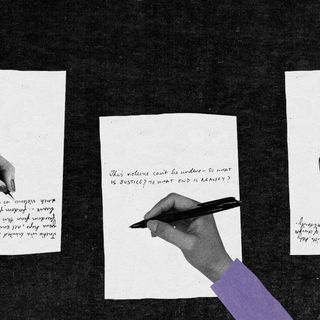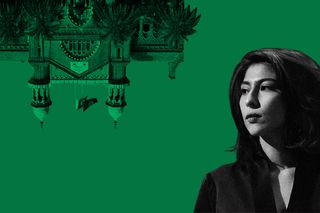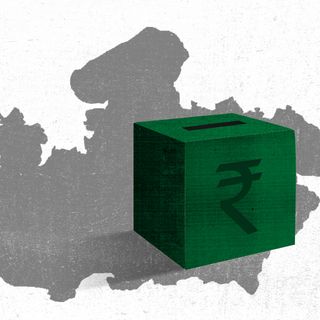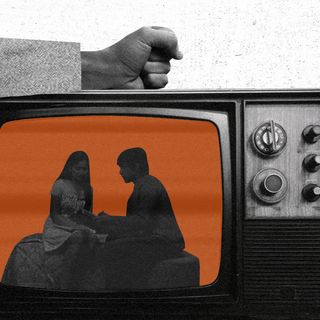The Lahore High Court on Wednesday allowed Pakistani singer and actor Meesha Shafi to proceed with a civil defamation suit against singer and actor, Ali Zafar. Zafar had been accused of sexual harassment by Shafi and other women. Earlier, a lower sessions court had stayed the defamation proceedings against Zafar; an order that the Lahore High Court has now overturned.
Shafi first released a statement in 2018 when she came forward with her allegations against him. Since then, she and other survivors have gone through a long uphill legal battle.
“Following her statement, a handful of Pakistani women came forward sharing similar incidents of Zafar’s inappropriate behavior. However, as Shafi went public with her claim, she faced immense backlash and was shamed incessantly on social media,” Neha Maqsood noted in The Swaddle last year, on the difficulties that artists in Pakistan face in coming forward with sexual harassment complaints. “It worked to only further highlight the misogynistic attitudes still ubiquitous among the masses and the social and emotional cost of coming forward with such statements.”
Shafi had taken Zafar to court for allegedly sexually harassing her. Zafar then filed a criminal defamation suit against Shafi for the complaint, and included eight other individuals in his suit.
He then proceeded to make statements against the Shafi in 2019, prompting her to file her civil defamation suit against him for mental torture and agony. “[T]he truth is I was targeted for personal gains. I don’t know whether by doing this she wanted to become another Malala and get fame abroad,” he said. The statement attracted much criticism for mentioning Malala, when he added “Meesha cannot become her by lying and running away from justice, hiding behind fake profiles on social media.”
The current victory represents a small win in the protracted legal battle against Zafar. “It’s been an incredibly difficult 4 YRS for me and everyone standing by my side. It took us 4 long, discouraging years to get 1 single case going while being attacked by multiple cases which galloped along full speed ahead. This is not equality! [sic]” she tweeted.
Related on The Swaddle:
Pakistan’s Entertainment Industry Is Finally Confronting Its Sexual Harassment Problem
Leena Ghani is another survivor, who also initiated civil defamation proceedings against Zafar and was a character witness for Shafi in her case. She was also among the eight people included in Zafar’s FIR. There are currently three ongoing cases against Zafar. “At least this way he will go through what he put us through,” she told The Swaddle. Noting his connections and financial privileges, Ghani notes that it’s easy for men like Zafar to initiate legal action against others. But the counter defamation suits are, in a way, subversive because of how they put the accused through the same process as the accusers in such cases.
“We do realize there won’t be justice, even if there is it takes years for these cases to come to any conclusion. So the punishment is going to the courts… the whole process, it’s so frustrating, demeaning and exhausting that that itself is a punishment.”
Noting that Zafar had ample opportunity through the years to twist the narrative while asking for a gag order on Shafi, Ghani speaks of this moment as one that allows survivors like herself to reclaim the narrative. “I decided in January 2021 to file my cases… he has defamed me on TV, on radio, everywhere — that has impacted not just my career but my life, my relationships. If his credibility is important and has to be defended, why not mine? Why am I not important?”
The Lahore High Court’s decision to allow Shafi to proceed with her defamation suit thus represents a small avenue for justice, where several others have failed. The defamation suit also reverses the norm set by powerful men who are accused of sexual harassment; it sets a precedent for survivors to challenge the attacks on their credibility that both the accused and the media frequently indulge in and are allowed to get away with. That Shafi’s suit hasn’t been overturned, therefore, represents a significant moment in the case that sparked Pakistan’s #MeToo moment.
In many ways, the move is a small step towards keeping it alive. “It’s impossible for MeToo to die down. The only time MeToo is going to die out is when there’s no sexual harassment or violence against anyone,” Ghani says. “The thing about MeToo is that it holds everyone accountable.”
“The fight has just started… we’re not saying that we’ve won the cases. All we’re saying is that at least now we will be heard and don’t have to wait for his defamation suit to conclude… it gives us an opportunity to fight back in some way.”




